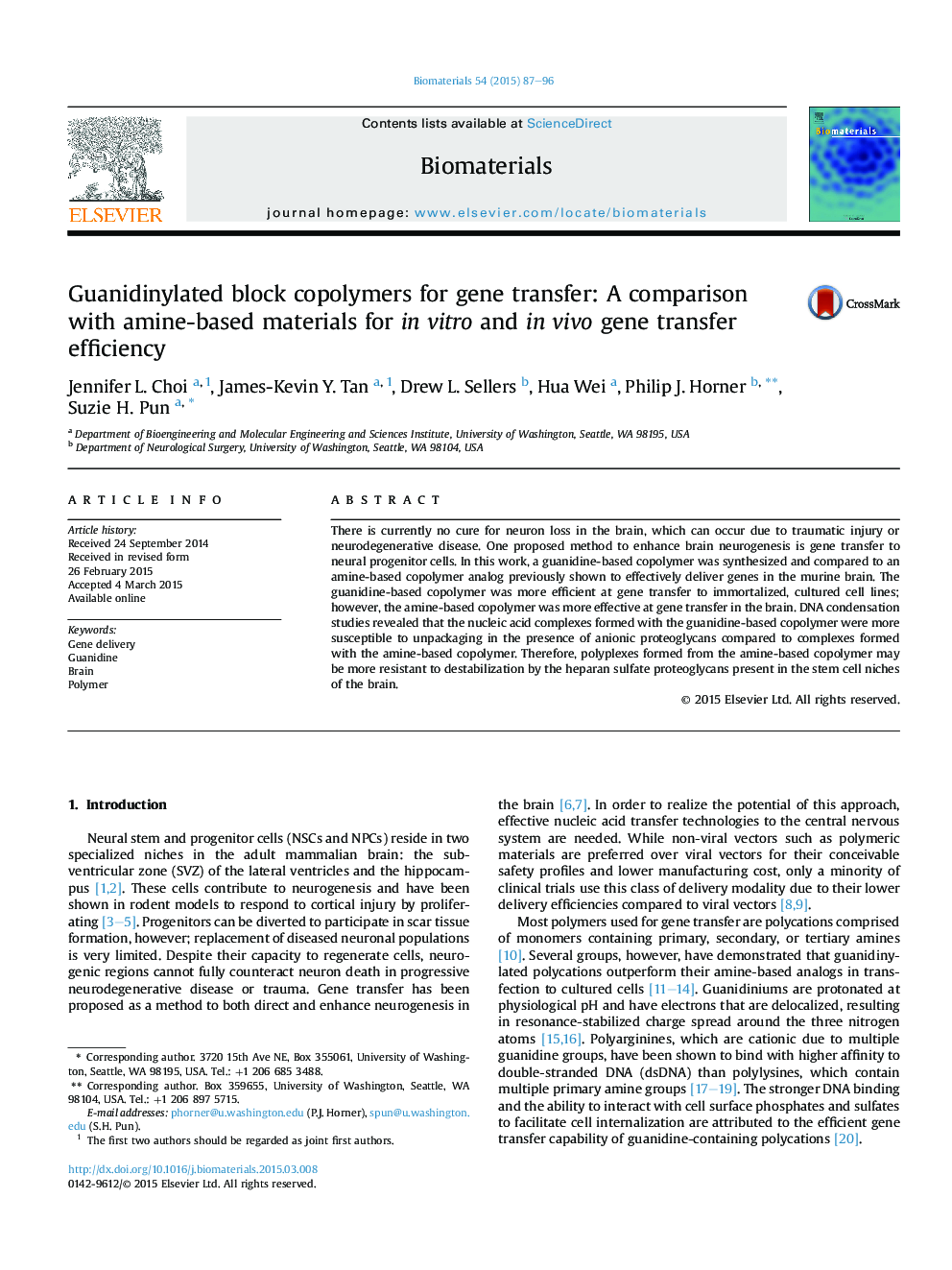| Article ID | Journal | Published Year | Pages | File Type |
|---|---|---|---|---|
| 6485782 | Biomaterials | 2015 | 10 Pages |
Abstract
There is currently no cure for neuron loss in the brain, which can occur due to traumatic injury or neurodegenerative disease. One proposed method to enhance brain neurogenesis is gene transfer to neural progenitor cells. In this work, a guanidine-based copolymer was synthesized and compared to an amine-based copolymer analog previously shown to effectively deliver genes in the murine brain. The guanidine-based copolymer was more efficient at gene transfer to immortalized, cultured cell lines; however, the amine-based copolymer was more effective at gene transfer in the brain. DNA condensation studies revealed that the nucleic acid complexes formed with the guanidine-based copolymer were more susceptible to unpackaging in the presence of anionic proteoglycans compared to complexes formed with the amine-based copolymer. Therefore, polyplexes formed from the amine-based copolymer may be more resistant to destabilization by the heparan sulfate proteoglycans present in the stem cell niches of the brain.
Keywords
Related Topics
Physical Sciences and Engineering
Chemical Engineering
Bioengineering
Authors
Jennifer L. Choi, James-Kevin Y. Tan, Drew L. Sellers, Hua Wei, Philip J. Horner, Suzie H. Pun,
